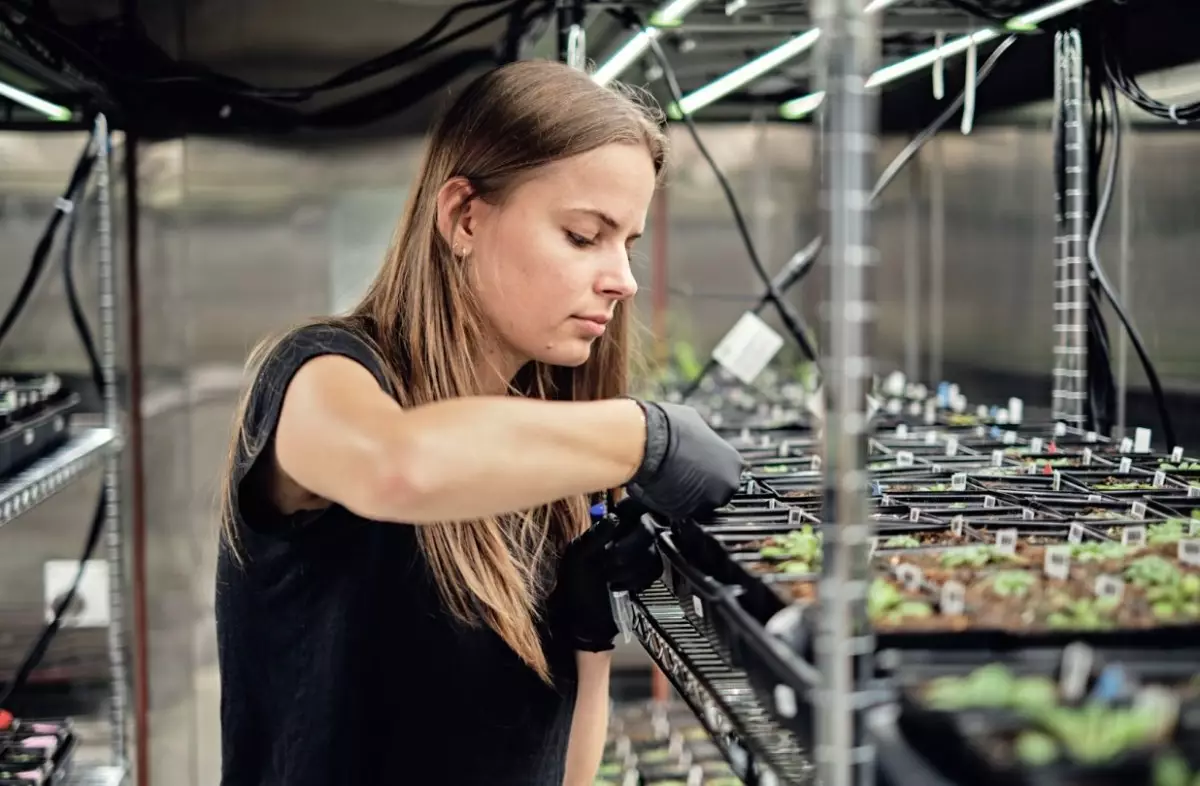Heritable Agriculture, a promising new startup emerging from Google’s innovative lab known as X, aims to tackle some of the most pressing challenges faced by modern agriculture. With the world grappling under the weight of significant environmental issues linked to farming practices, this venture proposes a modern solution that leverages data science and machine learning. Founded by Brad Zamft, a physicist with extensive experience in scientific leadership and project management, Heritable seeks to revolutionize how crops are cultivated, thereby contributing to a more sustainable food system.
Agriculture is often heralded as a cornerstone of civilization, providing sustenance for billions. However, its environmental footprint poses significant challenges. Currently, agriculture accounts for nearly a quarter of global greenhouse gas emissions and is the largest user of groundwater. Furthermore, the reliance on synthetic fertilizers, herbicides, and pesticides leads to soil degradation and water pollution. As these consequences become more visible due to climate change and resource scarcity, it becomes increasingly clear that traditional farming methods must evolve. Heritable Agriculture identifies this need and approaches it with a focus on data-driven decision-making.
At the heart of Heritable Agriculture’s mission is the application of advanced data analysis. Through machine learning algorithms, the startup aims to dissect plant genomes to find combinations that enhance crop yields while minimizing resource usage, particularly water, and maximizing carbon sequestration. Zamft’s experience, including his time at the Bill & Melinda Gates Foundation, informs his understanding of the potential for technology to revolutionize agricultural practices. This ambition to synthesize genetic knowledge with real-world agricultural needs positions Heritable at the forefront of agri-tech innovation.
While the allure of cutting-edge solutions like CRISPR gene editing looms large, Zamft emphasizes a more traditional approach for now. According to him, Heritable Agriculture will focus on identifying the best parent plants for breeding, rather than relying on biotechnological interventions like genetic modification at this stage. Zamft asserts that understanding what to breed and improving natural breeding processes represents a critical unmet need in agriculture. By concentrating on these conventional methods, Heritable can appeal to a broader base of stakeholders who may be wary of genetically modified organisms (GMOs).
As an offshoot of Google X, Heritable Agriculture benefits from a history of innovative research, corporate backing, and a robust development environment. The startup recently completed a seed funding round that included investments from entities like FTW Ventures, Mythos Ventures, and SVG Ventures, alongside undisclosed support from Google itself. This financial support is crucial for scaling their operation and bringing their technology to market. However, specifics regarding timeline and partnerships remain under wraps, generating a sense of anticipation regarding Heritable’s roadmap to commercialization.
Heritable Agriculture is not merely a standalone initiative; it is part of a broader movement towards sustainable agricultural practices. As climate change continues to threaten food security, the need for efficient farming solutions is more critical than ever. By utilizing data and technology, startups like Heritable aim to reshape the agricultural landscape, making it more resilient and capable of meeting the demands of a burgeoning population while safeguarding the planet’s resources.
With the launch of Heritable Agriculture, the agricultural tech landscape is poised for transformation. By focusing on conventional breeding enhanced by machine learning and data analysis, the company aims to address the urgent challenges faced by agriculture today. As the startup forges ahead, the agricultural industry watches closely, hopeful that innovative solutions will emerge to ensure a sustainable food future for generations to come. The success of Heritable could signify a turning point in how we cultivate crops, marking a significant leap toward more responsible and efficient farming practices.

